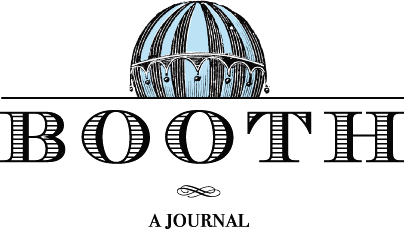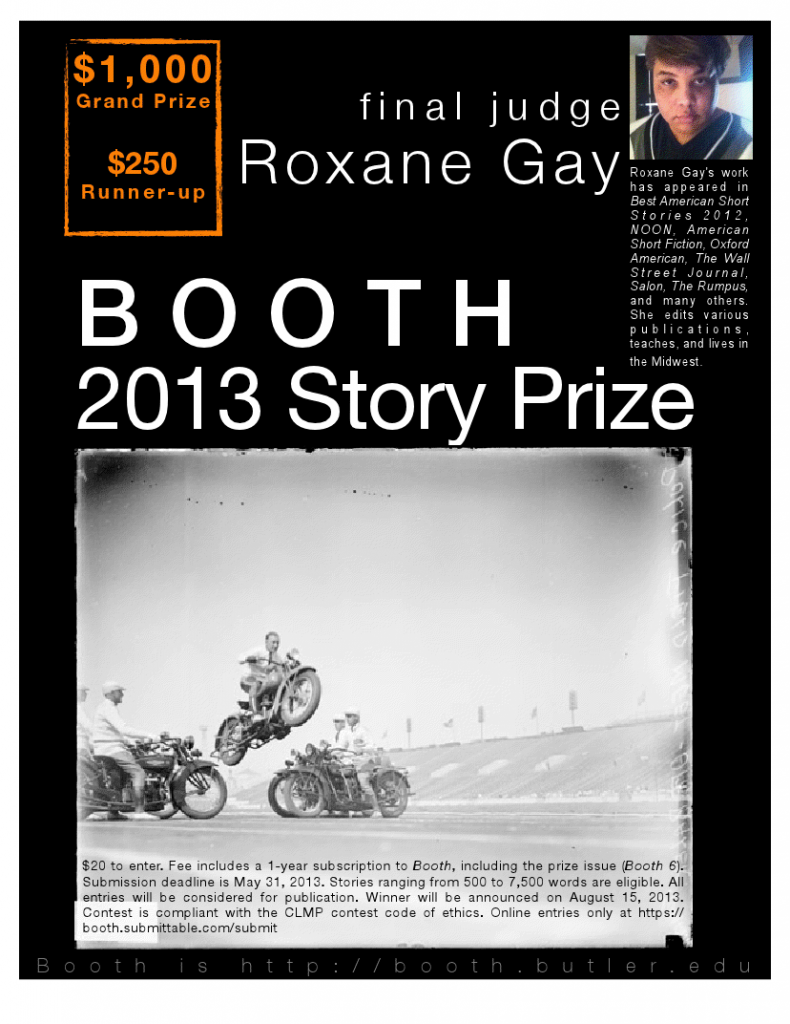 1st Prize: $1,000 and publication
1st Prize: $1,000 and publication
2nd Prize: $250 and publication
All entries will be considered for publication.
All entries receive a one-year (two issues) subscription to Booth, including the Prize issue.
Winner will be announced on August 15, 2013.
Entry fee is $20.
Stories must range from a minimum of 500 words to a maximum of 7,500.
Enter your submission for the 2013 Booth Story Prize.
Final Judge
Roxane Gay’s stories have appeared in Best American Short Stories 2012, American Short Fiction, Virginia Quarterly Review, Oxford American, NOON, Ninth Letter, Mid-American Review, Best Sex Writing 2012, and elsewhere. Her writing has also appeared or is forthcoming in The Wall Street Journal, Salon, Prairie Schooner, and the New York Times. Grove/Atlantic will release in 2014 her novel, An Untamed State, and Harper Perennial will release her essay collection, Bad Feminist. Gay is the co-editor of PANK and the essays editor for The Rumpus.
Fine Print
Our Story Contest is compliant with the CLMP Contest Code of Ethics (see below). All rights revert to the author upon publication. Students and former students of Butler University and of this year’s judge may not enter. Butler University employees are ineligible as are close friends of the judge. Simultaneous submissions are fine, but you must withdraw your work from consideration if it becomes committed elsewhere. Further details on the reading and judging process are available upon request. Gay lives and teaches in the Midwest.
CLMP Contest Code of Ethics
“CLMP’s community of independent literary publishers believes that ethical contests serve our shared goal: to connect writers and readers by publishing exceptional writing. We believe that intent to act ethically, clarity of guidelines, and transparency of process form the foundation of an ethical contest. To that end, we agree to 1) conduct our contests as ethically as possible and to address any unethical behavior on the part of our readers, judges, or editors; 2) to provide clear and specific contest guidelines — defining conflict of interest for all parties involved; and 3) to make the mechanics of our selection process available to the public. This Code recognizes that different contest models produce different results, but that each model can be run ethically. We have adopted this Code to reinforce our integrity and dedication as a publishing community and to ensure that our contests contribute to a vibrant literary heritage.”
